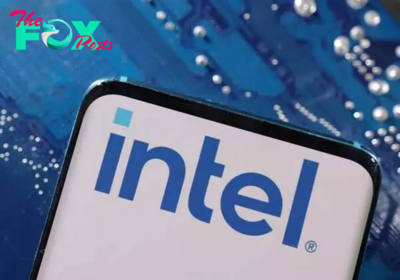Technology
Can AI Help You Do Your Taxes?
Leaders of AI companies often argue that AI products will handle mundane tasks, freeing people up to be more productive and creative. And there are few tasks more mundane than taxes. An individual American taxpayer spends roughly 13 hours and $240 out-of-pocket costs just to prepare and file one annual tax return, according to one 2022 study—an estimated 1.15 billion hours collectively spent on tax preparation.
So it’s not surprising that tax companies have begun rolling out AI-powered tools in an effort to make filing easier. AI-powered tax software, these companies argue, can automate repetitive tasks like data entry, cull through patterns in order to find relevant tax breaks, identify potential compliance risks, and answer tricky questions that filers may have.
But like a lot in the world of artificial intelligence at the moment, the promise of AI tax tools is more compelling than the products currently available. This year, AI chatbots have given out wrong answers to straight-forward tax questions, a dangerous proposition especially for filers who depend on refunds to pay bills. Tax experts contend that taxpayers should not rely exclusively on AI tools to file this year. However, some still predict that AI will have a major impact on both the way people file and the entire tax industry in the years to come.
Read More: The 3 Most Important AI Innovations of 2023
“Building tax software in the U.S. is very complicated, tedious and requires a lot of capital and time,” says Ben Borodach, co-founder & CEO of the AI tax startup April. “AI allows us to basically 10x the rate at which we code tax law—which will allow new providers to come into the market with better products and services.”
The IRS’s Use of AI
The first way that AI is already having an impact on taxes on the Internal Revenue Service itself. The IRS is notoriously underfunded and slow to respond to individual questions about returns. In 2022, President Biden granted the IRS $80 billion over ten years as part of the INFLation Reduction Act, which earmarked funding for tech upgrades to ease the experience of filers. (Republicans in Congress clawed back $20 billion of that, however.)
That IRS funding has gone in part to the development of voicebots and chatbots, which have helped more than 13 million taxpayers avoid wait times in getting their questions answered, according to an IRS statement. However, Subodha Kumar, a professor at the Fox School of Business at Temple University, has been testing IRS’s chatbots with his students at the Center for Business Analytics and Disruptive Technologies, and says they are “not really great yet” in terms of delivering useful answers at a high rate. “But they’re still working on it,” he adds.
The IRS also intends to deploy artificial intelligence in auditing. The IRS has long grappled with bias in that process: Black taxpayers are three to five times more likely to be audited than other taxpayers, research has shown. In September, the IRS announced that it would use AI tools as part of an effort to “restore fairness,” detect tax cheating, and focus its auditing on high earners.
Kumar, however, worries about the biases that generative AI systems could bring to an already flawed process. “Many of these generative AIs are built on the kind of data that has the potential to have this kind of bias,” he says. “That worry is genuine: It may not only create more headache for the IRS, but pain for certain segments.”
The Rollout of Chatbots
Most people don’t file their taxes with the IRS directly: they use software like TurboTax and H&R Block. A survey of 3,499 people from PCMag found that 58% of respondents filing online used TurboTax, while 14% used H&R Block Deluxe. Both of those companies have turned to AI to bolster their products. Last year, H&R Block announced a partnership with Microsoft and OpenAI to create products including AI Tax Assist, a chatbot trained on information from H&R Block’s accountants, lawyers and tax professionals.
Jeff Jones, the CEO of H&R Block, says that advancements in generative AI have “unleashed a whole new level of possibility for the Business.” “Our basic approach is, let's just start deploying models in real time and let our own knowledge inform our product roadmap instead of sitting on the sidelines and waiting to see what happens,” Jones says.
But the rollout hasn’t been perfect. A Washington Post reporter found that both H&R Block’s AI Tax Assist and TurboTax’s Intuit Assist incorrectly answered questions about taxes. Jones acknowledges that AI Tax Assist doesn’t always give the right answer. He points out that the chatbot is one of three options provided to customers who need help, next to a live-chat option and a search engine that directs customers to knowledge articles. “Any time something is being done for the first time in the world, innovation is ripe for criticism,” he says. “We've tried to provide the guardrails necessary so the consumer understands how early in this journey this Technology really is. You want to make sure you get professional expert help before you rely on the answers.”
Because these tools are rudimentary, the level of skepticism remains high. Jones says that customers calling in asking for help have generally preferred to wait to talk to a human rather than talking to a conversational AI. Meanwhile, a survey from The American Survey this month found that 73% of at least 23,900 respondents say they wouldn't trust AI to help them do their taxes.
Can AI Startups Disrupt the Status Quo?
As the powerhouses of the tax world incorporate AI, startups have also emerged in the last couple years with the hopes of taking some of their market share. One of those is April, which was founded in 2021 and raised $30 million in a Series A funding round the following year.
A key draw of April’s software is that it is embedded within financial apps that people already use, including Gusto, a payroll platform, and Chime, a mobile banking app. April automatically imports data from those sources to give users tax estimates and information throughout the year, so they’re not starting from scratch every March or April. April is now available in 50 states. Ben Borodach, the company’s CEO, says that tens of thousands of people are using April to file their taxes this year.
More From TIME
April wields machine learning to analyze tax code and tax forms in order to personalize filings. Borodach says building the company would have been impossible without AI tools. “The federal law has grown to tens of millions of words, and the legal code changes every year,” he says. “As a provider, you have to go through testing and build in a very short period of time. AI has dramatically reduced the amount of time and capital to get this done.”
The user experience of April feels pretty similar to that of TurboTax: It asks you various yes/no questions about your job, family, education that might be pertinent to taxes. April also comes with its own AI-powered chatbot that algorithmically generates answers by combining knowledge from AI models and content from April’s support team.
But April’s product is only useful if filers already use one of the services that April has partnered with. And its coverage isn’t all-encompassing: It is unable to help you if you need to file two state returns, for instance. Borodach says April’s services will continue to expand in the coming years. “The AI story in tax is all about enabling a new provider in the space, which we haven’t had in the market for years,” he says.
Kumar, at Temple University, agrees, and points to other startups creating similar products to April, including Chetu, Keeper and FlyFin. “For a long time, there were two to three companies who were ruling this market. But going forward, that will not be the case,” he says.
Helping disadvantaged filers
Code for America, a nonprofit focused on bringing 21st century Technology to government, has also been exploring how AI might aid filers in need. Code for America has a program called “Get Your Refund,” in which it pairs low-to-moderate-income applicants with volunteer tax filing experts. In 2023, the nonprofit reported that the program helped 24,500 taxpayers in 29 states and DC claim over $33 million in benefits.
Recently, Code for America realized that one of the major barriers to helping applicants was the simple but tedious matter of making sure all of their correct documents were uploaded. Now, the nonprofit is looking into how it might use machine learning to identify uploaded documents, label them, and figure out what’s missing before passing an applicant on to an actual human volunteer. This could then free up the volunteers that were previously culling through documents to provide more hands-on help. “We're really interested in being able to use new technologies in a human-centered way to be able to provide this more empathetic and dignified experience,” says Jenn Thom, Code for America’s senior director of experience insights, who also leads the organization’s AI strategy. “And there are a lot of bottlenecks still out there that can be tackled with AI.”
Kumar, at Temple, similarly believes that generative AI could be a “Game-changer for filers, and reduce lots of steps for the users.” However, the idea that an AI could do your taxes for you without guidance or oversight remains far away. “At least for the next five to seven years,” Kumar says, “people will still need to check everything.”
-

 Technology4h ago
Technology4h agoChipmaker Intel falls as AI competition hurts forecast
-

 Technology10h ago
Technology10h agoAlphabet, Microsoft earnings show hefty AI bets are driving growth
-

 Technology10h ago
Technology10h agoArgentine scientists find speedy 90-million-year-old herbivore dinosaur
-

 Technology15h ago
Technology15h agoUnder the influence and under arrest − what happens if you’re drunk in the interrogation room?
-

 Technology15h ago
Technology15h agoCybersecurity researchers spotlight a new ransomware threat – be careful where you upload files
-

 Technology1d ago
Technology1d agoWhat a TikTok Ban in the U.S. Could Mean for You
-

 Technology1d ago
Technology1d agoWhat Is Artificial Intelligence Consciousness And How Far Away Is It?
-

 Technology1d ago
Technology1d agoBanning TikTok won’t solve social media’s foreign influence, teen harm and data privacy problems

















